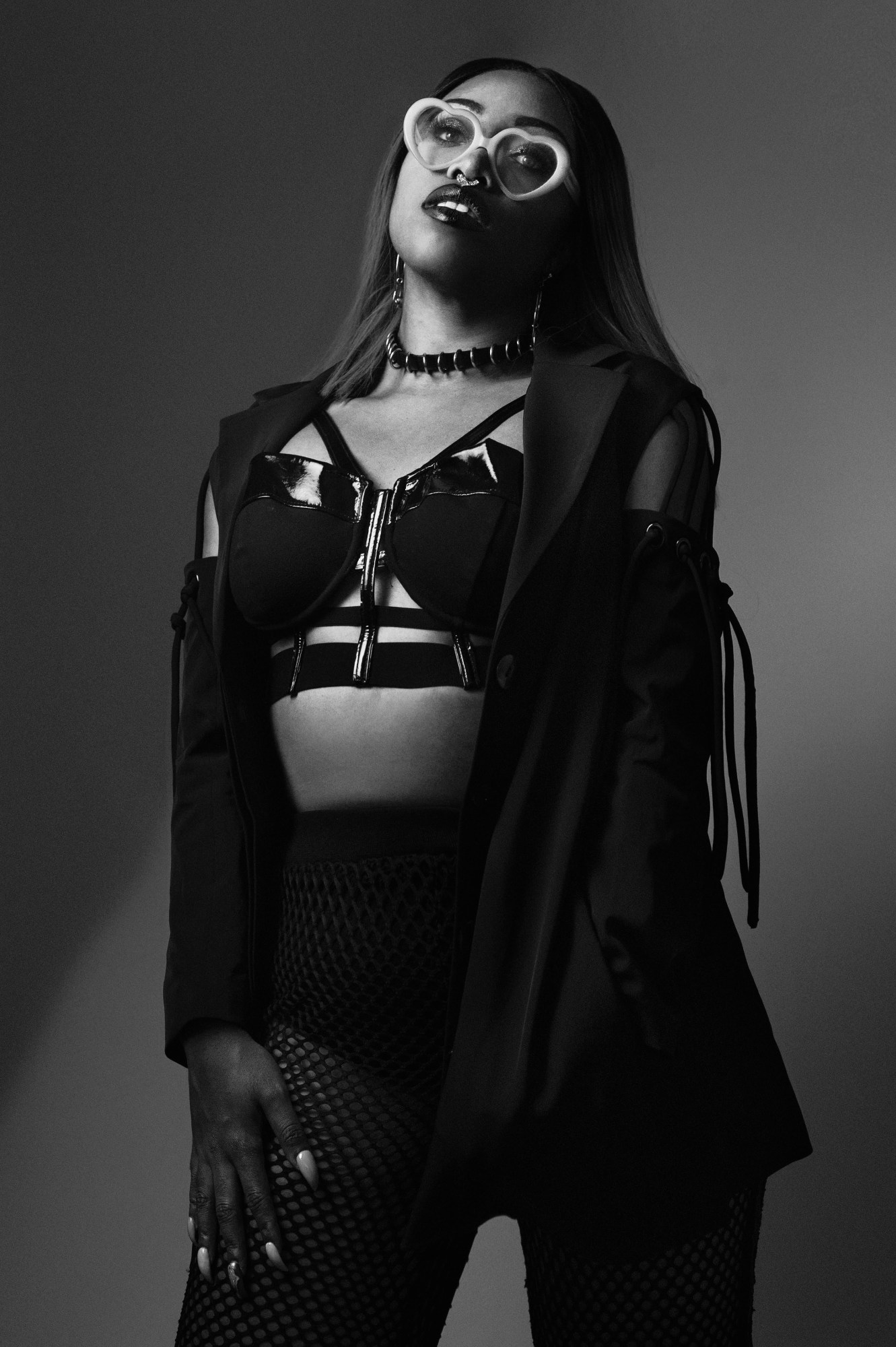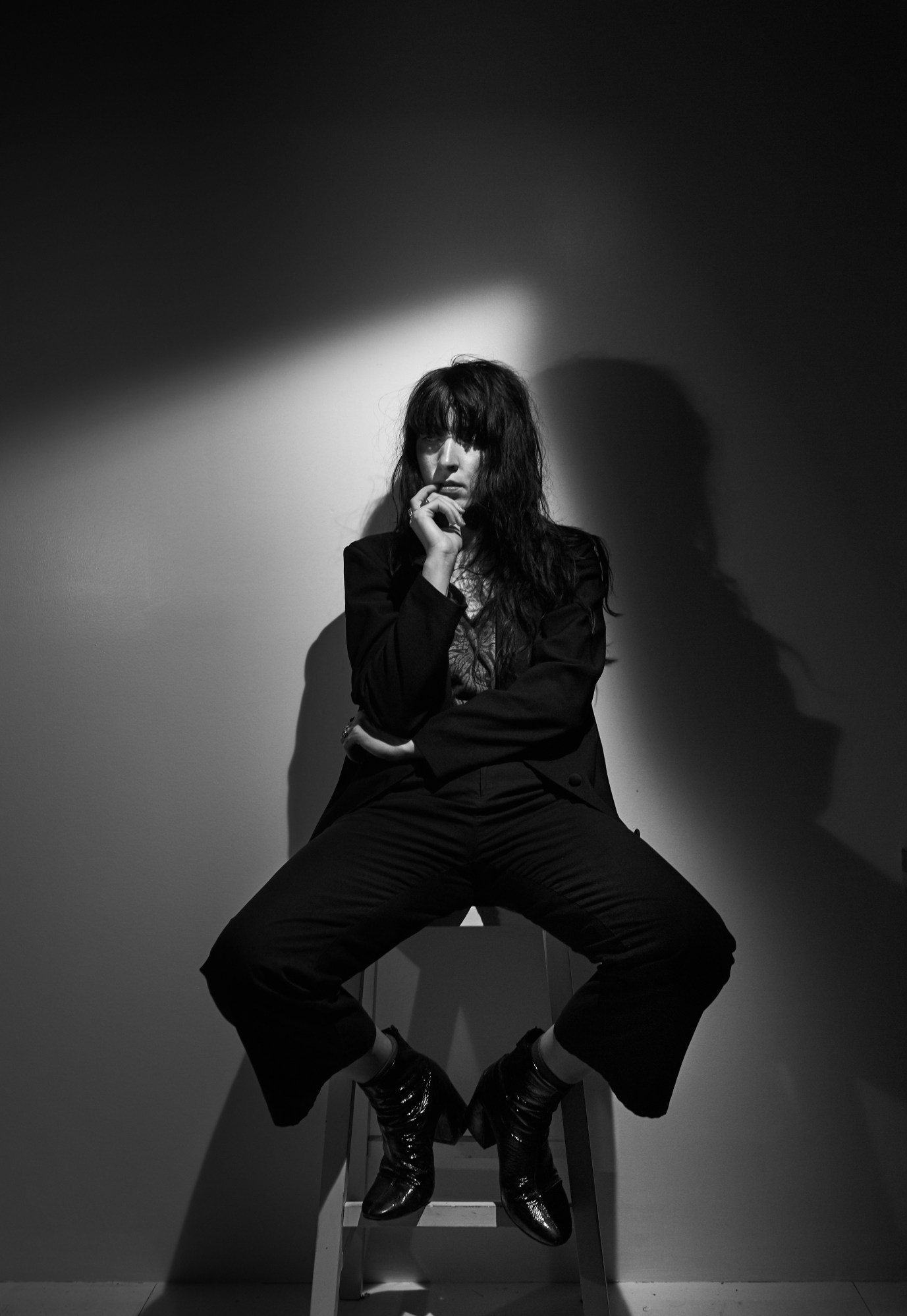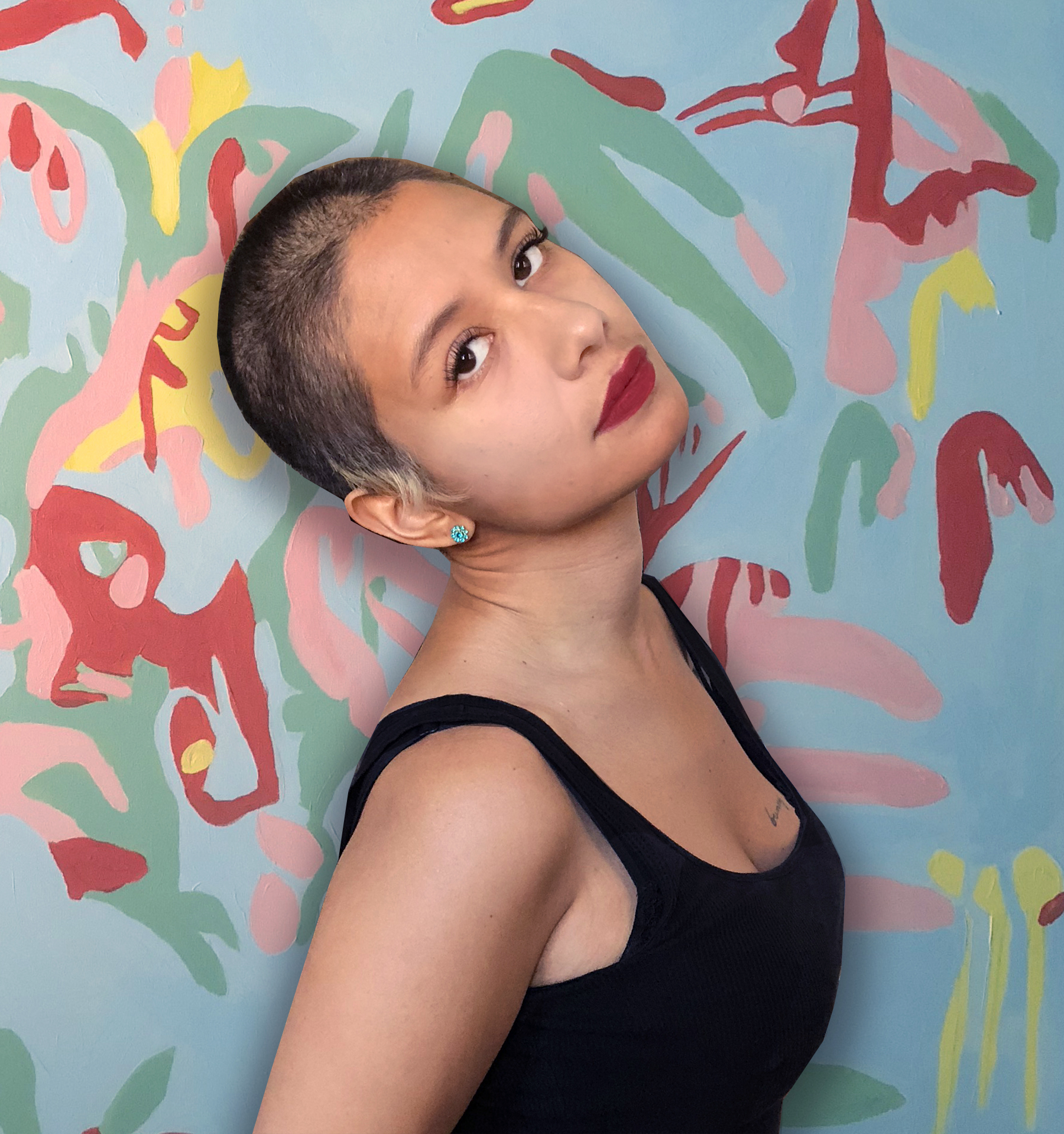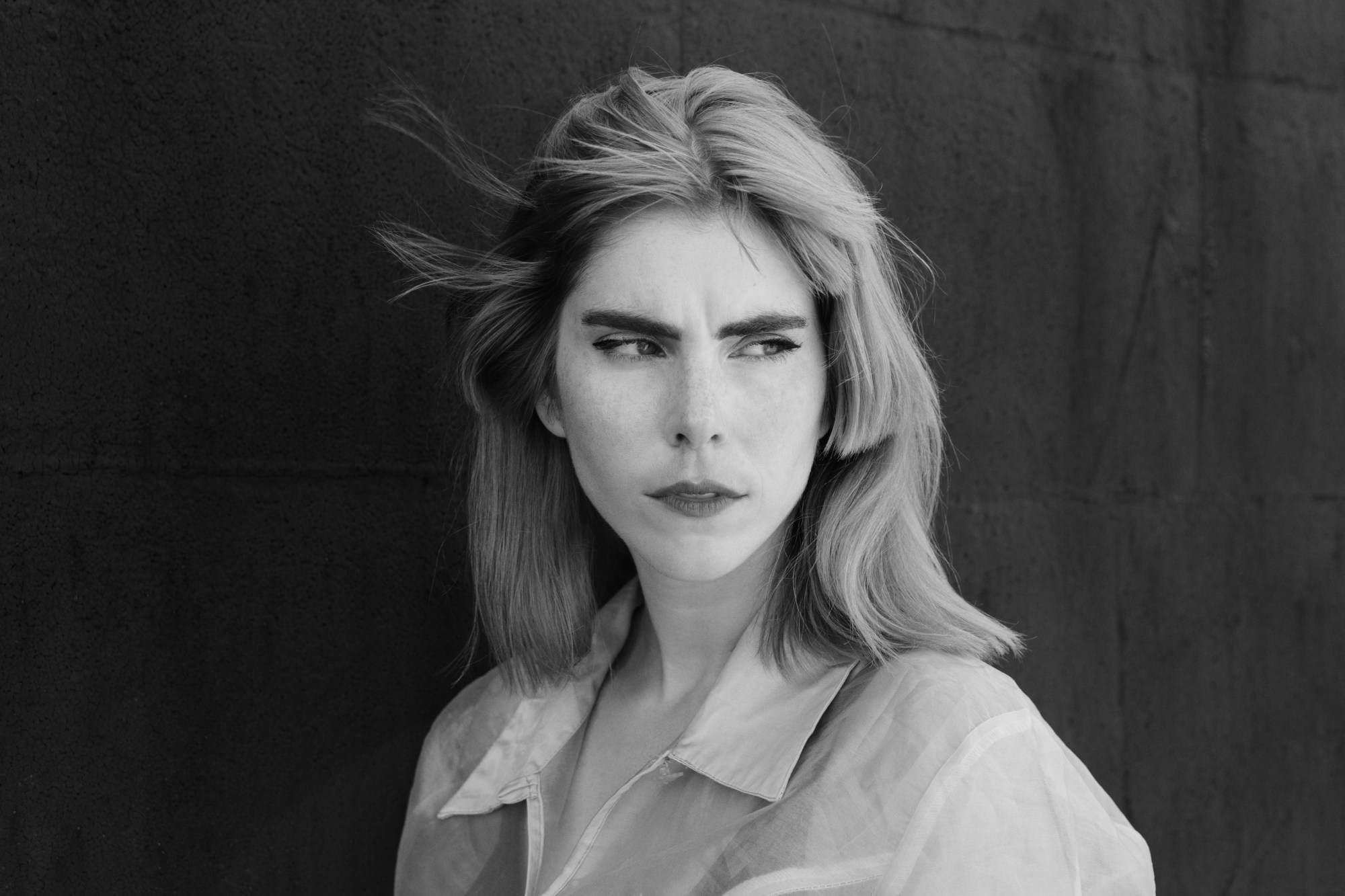Author René Kladzyk is a NYC-based musician, perfumer, and cultural geographer, who performs under the moniker Ziemba.
As a working musician and a woman, I can’t ignore the ways that gender inequity penetrates all levels of the music industry. It’s like a horrible onion where every layer is moldier and grosser than the last. Some elements of this trend are widely-known: from #grammyssomale and the abhorrent comments of now-ousted Grammy President Neil Portnow, to the abuses of Dr. Luke and other predatory power players. Yet other insidious outcroppings of sexism in the music industry are seldom discussed. One significant example is the disproportionate numbers of men who helm record labels and other key behind-the-scenes roles in the industry.
This summer, I began searching for a label to put out my forthcoming album, reaching out to record label heads and A&R reps who I thought might be a good fit. I soon noticed that nearly every single email I was sending was addressed to a guy. Among the indie labels I looked at, I noticed that the gender breakdown on label rosters tended to hover around six to one masc to femme artist representation. This was among labels that overtly present themselves as forward-thinking and social justice-oriented. My curiosity piqued! I tallied the primary A&R contacts for record labels listed in the 2018 A&R registry. The verdict? Eight to one, men to women. This list of the “20 Greatest Indie Labels of All Time”? Not a single one of these labels was started solely by a woman.
I challenged myself to find record labels run by women or nonbinary people, and was sorely disappointed to discover how rare femme-run music labels are. As I looked, I began to dip my toe into the vast sea of questions that follow regarding the implications of an industry where the gatekeepers are so disproportionately men. Which versions of femme expression are elevated and which are suppressed? What voices get to count, and why? In what ways have the aesthetics of popular music been shaped by patriarchy? What steps are needed to move toward a more egalitarian music industry?
I turned to authorities on the subject: some of my favorite women and nonbinary musicians who are bucking the traditional label system. From across a range of genres and scenes, these artists are rewriting the rules of the industry, and building a more inclusive future in the process.

Suzi Analogue
Producer, Composer, Recording Artist, Founder of Never Normal Records and multimedia collective Never Normal Soundsystem, member of Discwoman.
On starting Never Normal Records:
“I just didn’t feel like [other labels] could convey my story, for the music that I wanted to make and the corner of the world that I wanted the world to see more of. I didn’t see anything like Never Normal, a place for kids who grew up listening to everything — multi-talented, brown and black, and making electronica, hip hop, whatever we really want. There were only a couple labels and they were so male. They were just so male! I knew where I stood, I knew what I felt, and I really went with my vibe.”
On the mission of Never Normal:
“I want to help [the artists on Never Normal] to tell their story because I know that it’s a jungle out there. If they were to approach anyone else, they would try to mold them into this token. And I don’t think we have to do that anymore. I’ve bumped against that throughout my whole existence of being an artist, becoming the token: token woman, token black girl, token hip-hop person. And whenever I felt like I could be tokenized, I just bucked against it. I’m helping these younger emerging artists to realize that they can just be them, and that’s fine. That’s fine because with Never Normal they have a home.
Legacy is very important for Never Normal: building something that’s culturally connected, and building a new history for electronic music. When people think about electronic music, they don’t think about it as black or brown or queer, but it is. That’s how it started. I want to continue the legacy of that story. So it’s a very exciting time. I want to decentralize some of these more toxic notions in the music industry, through our releases alone.”
On getting pigeon-holed as “just a singer”:
“The first thing people always ask me when I tell them I’m a musician is, ‘Oh you sing?’ Why yes I do, but I also write and I produce, and they’re like, “Wow that’s different.” For so many people that’s how women were marketed, and that’s how we’ve always been seen. So it’s important to me to visually show that femme beatmakers or composers exist. I really believe in semiotic iconography, building things visually so people can see it. I use visuals as a gateway to understanding and engaging in some of the harder conversations, especially when it comes to the image of what femmes can do in music, which is everything.”
@suzianalogue

Fielded
Recording Artist, Producer, Composer, Founder Universally Handsome music/clothing label.
On trusting that you know what’s best for you:
“As a female producer, I had always been told that my stuff ‘would be better if’ by men. ‘Maybe try this,’ or ‘You should get someone else to produce this.’ And I had a moment where someone was saying that and I realized, ‘Actually, I might be more skilled than this person.’ It was this moment where I was like, you’re telling me that you’re better, that you know better, and I believed you my whole life.” I have spent a long time mixing and mastering. Maybe not the best set in the world. That’s not my fucking goal, my goal is to sound like me. And to be the artist that I want to be. It’s not about being the best. When I talk to men, a lot of the time, and I don’t want to generalize all men, but some male musicians, it’s about being better than another band, like winning, in this really weird way.”
On the prevalence of white dude bands at record labels:
“When I was shopping my record around, I would scroll down [the websites] of labels, and there was like one band with a person of color, two female artists, and then 15 different four-piece white dude bands. I was like, those guys might be perfectly chill, cool, amazing dudes, but this is not representative of the community that I surround myself with! The people that I interact with on a daily basis, the people who have been involved with my record — that was the mindfuck that started to happen for me when I stepped out of this idea of needing to be accepted by a label or wanted by a label.”
On founding Universally Handsome records and moving forward:
“I wanted to do something that empowered women, and I wanted to be in control of my own music, because it had been controlled by men since I was like 17. I started Universally Handsome with the intention of working with artists who are overlooked, too poppy for the weirdos and too weird for the pops. I wanted to put artists and clothing designers together to create garments that would somehow house the record. So I released Boy Angel and I did a little work with the clothing through that, but ultimately ran out of money. I’m just going to keep moving forward, that’s what I taught myself to do.”
@_fielded_

Hether Fortune
Recording artist, Composer, Producer, former front-woman of Wax Idols, Founder of Etruscan Gold Records.
On the decision to start Etruscan Gold and self-release:
“I’ve always been free to move around as my career evolved because I never signed a formal contract with anyone. My last record label experience preceding Etruscan Gold was with Collect Records, which went under due to the great Pharma Bro Scandal of 2015. That label was run by Geoff Rickly from Thursday, someone I’ve known and admired for 17 years. He is a true and honest champion of artists. It was a dream that turned into a nightmare. After that shit show, I decided to just do it myself. I was sick of leaving the fate of my records in the hands of other people and I had reached a professional crossroads — regress or evolve.”
On gender inequity at record labels:
“It is absolutely disproportionate. There are womxn involved in every level of the industry, but in terms of who is in charge at 95% of record labels and who is making the final decisions, it is primarily men. And though my personal experiences working with male-operated labels have not been unsavory in any kind of overt sexist way, it has at times felt covert, like I was not being prioritized for reasons that had nothing to do with my talent, dedication, following, or ability to generate “buzz.”
For example, the third album of my former project Wax Idols, American Tragic, was initially released via Collect. It was the only predominantly femme project on the label. Now, I know Geoff would have given me all the money in the world if it were up to him, but the aforementioned brosef behind the scenes only thought that record deserved $8000, which isn’t much if you know anything about the cost of recording, mixing, mastering, visuals, etc. It’s more money than I got for the first two Wax Idols records so I was grateful, but later on I discovered that an all-male band no more notable than mine — they were given an advance upwards of $40,000. That’s a $32,000 disparity between what my record was deemed worth versus a band of dudes who I won’t name. It’s hard not to wonder about something as glaring as that, though in hindsight I am relieved to have had less of that tainted money involved in my work.”
On the philosophy of Etruscan Gold:
“The philosophy behind it is simple: to be truly independent. I think that the way the music industry is structured is at a point of reckoning. It needs to change and it is changing. The dinosaur has to evolve with society and with the way that music and art is advancing. Also, a lot of the bigger indie labels that we’re conditioned to aim for if we want to “succeed” are umbrellaed by majors. People love to wax poetic about “independent” music and DIY, but hardly anyone wants to talk about where a lot of the money is really coming from, because then they would have to examine the ways in which they are complicit in some really dark stuff. Back in the 60s and 70s it was almost impossible to release a record independently but that started changing decades ago. In 2018 with the internet and everything, there is almost no excuse for getting into bed with The Man.”
On starting a record label and doing it yourself:
“Trust me, you can totally do it. People make it seem like it’s this mystifying, terribly difficult thing because they don’t want to empower other people to do it. They want to hoard it for themselves because it’s an opportunity for them to have power and control over music scenes, what gets out and what doesn’t. The reality is that it’s not that hard — you just have to tackle the learning curve and work your ass off, like anything else in life.”
@hetherfortune

Bunny Michael
Self-released Musician, Artist, Writer, Healer
On why they self-release:
“I’ve realized over time, self-releasing, that it’s not that I don’t want to work with a label, but I don’t want to work with a label unless it makes sense for how I see myself having a sustainable artistic career. If they don’t have the vision that is necessary to be future, then why would you work with them? If they don’t have the vision to see how queer music is so important, if they don’t see you, then why would you want to work with them? I think that’s the most important thing.
Being in a room full of cis-men deciding the fate of your art can feel very intimidating and you just don’t feel safe with your baby there. You know what I mean? You want to work with people who understand. Especially if your work is political or speaks about the nuances of who you are and your experience.”
On male validation and patriarchal aesthetics:
“We are taught that we need male validation because they’re the true music heads. They know what’s good. I remember being in high school, and my guy friend being like, ‘Oh yeah our teacher today told us that there aren’t really any good female musicians in history,’ and I was like, ‘What?’ It’s so ingrained. We’re just always looked at as less than, but honestly I don’t care anymore. Because it’s their fucking journey, and I feel bad that they see the world in this tunnel vision. Like how sad is it when you don’t diversify in experience? This is the beauty of life. You have a whole garden but you’re just staring at a sunflower. You’re missing out on everything else, and I feel bad for you.”
On the future of the music industry:
“It’s really important now for all artists to see their work as this collaboration into the journey for raising the consciousness on the planet. And see how they have a job to do by courageously expressing themselves. I think what’s amazing is that social media has given access to audiences that the industry never did for anybody. Some kid in like rural America can make a song, put it up and gain a following, and they would have never have had the opportunity to give their record to a label. When we really look at it, we need to be excited about the fact that there’s access for more people, and there’s room for everybody. We’re not in competition with each other. We’re doing important work and people need us, people need artists.”
@bunnymichael
